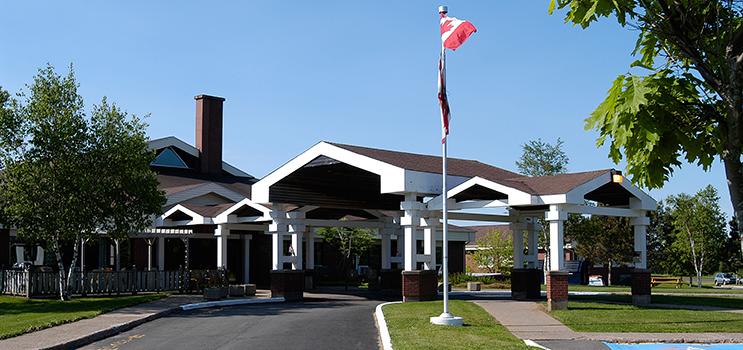Study Design
This is a pilot study. The pilot involves 6 of 10 publicly-funded long term care residences in the province of Prince Edward Island.
The residences are included in this study are those which use a nurse practitioner/medical director model for medical care delivery.
The primary goal of this initiative is to measure the impact on teamwork, resident satisfaction with care, and family satisfaction with resident care.
Secondary goals include determining the impact on resident outcomes including adverse events, falls, emergency department visits and hospitalization rates.
The main research question in this study is to determine the impact of collaborative rounding in long term care through an assessment of patient-reported
experience measures (PREMS) and patient-reported outcome measures (PROMS). The measures are based on a person-centred care approach and have well-established validity and reliability.
What New Knowledge is Anticipated
Open communication, positive relationships and the exchange of diverse ideas between team members involved in resident care are associated with encouraging outcomes. With a focus on early recognition, assessment and management of residents’ conditions, as well as developing positive relationships with care providers and resident families, hospitalization may be avoided in some instances and resident care improved.
Why are we conducting this study?
Long term care homes face many challenges. Currently, most individuals who reside in long term care are assessed by their medical provider on
an as needed basis rather than scheduled routine visits. This ad hoc assessment is rarely collaborative and often inconsistent, creating confusion for residents
and their families. Infrequent and sporadic documentation also contributes to confusion among the care team and inconsistent messaging to residents and their families.
Long term care also continues to struggle with human resource challenges including poor recruitment and retention of healthcare workers. As a result of these factors,
those living and working in long term care face significant challenges for safe and effective communication which contributes to adverse events experienced by residents.
Collaborative rounding in acute care settings have been shown to improve communication with patients and patient families as well as communication among health care team members.
Other positive outcomes observed include improved patient safety, and provision of person-centred care, as well as improved teamwork and staff satisfaction.
Collaborative rounds can also serve as a platform for quality improvement efforts. Using a similar model, the research team seek to determine if similar outcomes will result with collaborative
rounding in long term care.
What will I be asked to do?
Collaborative bedside rounding will occur at monthly intervals for each resident living at Beach Grove or Prince Edward Homes. Residents who reside in the control group homes will receive standard care. Residents will be assessed on a scheduled monthly interval at the bedside. All members of a resident’s care team are invited to participate. Team members will include family members, resident care workers, licensed practical nurses, registered nurses and the resident’s nurse practitioner. Allied health and pharmacy will have opportunity for involvement at a pre-round huddle. Residents and their families will be given advance notice of rounding times. Current restrictions posed by COVID-19 include visiting restrictions at long term care homes. When visiting is permitted, families and partners in care will be invited to participate. Documentation will be standardized and will include a progress note that will exist electronically in the electronic record visible to outside care providers and a printed copy on the resident’s paper chart. Residents, families and team members will be invited to complete surveys at 0, 6 and 12 month intervals. Participation is voluntary. Patient-experienced outcomes will be tracked using the Provincial Safety Management System (PSMS) which is the tool used to monitor adverse events. The team of healthcare professionals will continue entering adverse events using PSMS; this study will not alter the current reporting process and will not result in increased reporting requirements.
What data are you collecting?
Residents, family members and staff members will be surveyed at 0, 6 and 12 months. Residents will be surveyed using the “Resident Experience” questionnaire with the assistance of a trained research assistant. Family members of current residents are surveyed annually using the “Family Experience questionnaire, one additional data collection point at 6 months will be collected and analyzed. Healthcare team members involved in direct resident care will be surveyed using the “TeamSTEPPS 2.0 Teamwork Perception Questionnaire”
Who is conducting this study?
Dr. Janet Rogerson is the Medical Director of Long Term Care and will be the primary co-investigator responsible for the project and knowledge translation to healthcare providers
and policy makers. Dr. Rogerson will be responsible for overall study implementation, coordination, and will lead the application of this research in the LTC Facility.
Dr. William Montelpare is a Professor and Research Chair who will be a co-investigator with Dr. Rogerson. He will be responsible for research design, management of data, and data processing on this project.
He will assist Dr. Rogerson with knowledge translation to healthcare providers and policy makers.
Ellen Christie is a Nurse Practitioner in long term care who will be a research associate on this project. Ellen will be involved in data collection and analysis.
What is the process for confidentiality?
Potential participants will be introduced to the study through a 20 minute presentation in which the purpose and expectations of the project will be described.
Letters of information will be provided to all residents, families and team members.
Consent is implied via voluntary completion of survey instruments.
Surveys for residents will be conducted in person by a trained research assistant.
The research assistant will clearly explain that all concerns will be kept confidential, and that questionnaire results will be used for research purposes only.
Residents will be provided with contact information of facility administrator If they wish to share concerns with a health care team member.
The investigators analyzing data will have anonymous surveys.
Surveys from family and team members are completed anonymously and on a strictly voluntary basis. Consent is implied upon voluntary survey completion.


